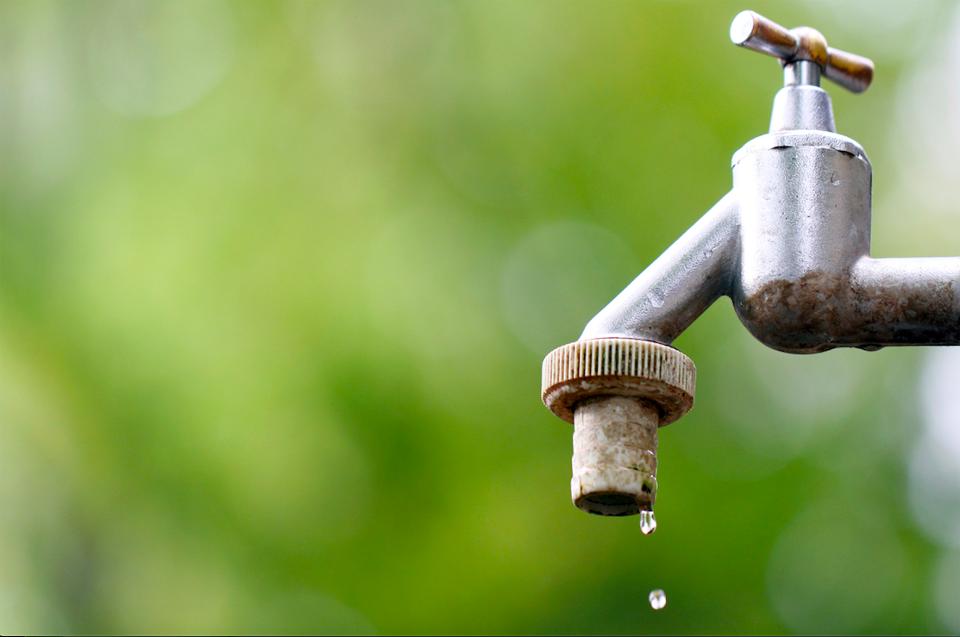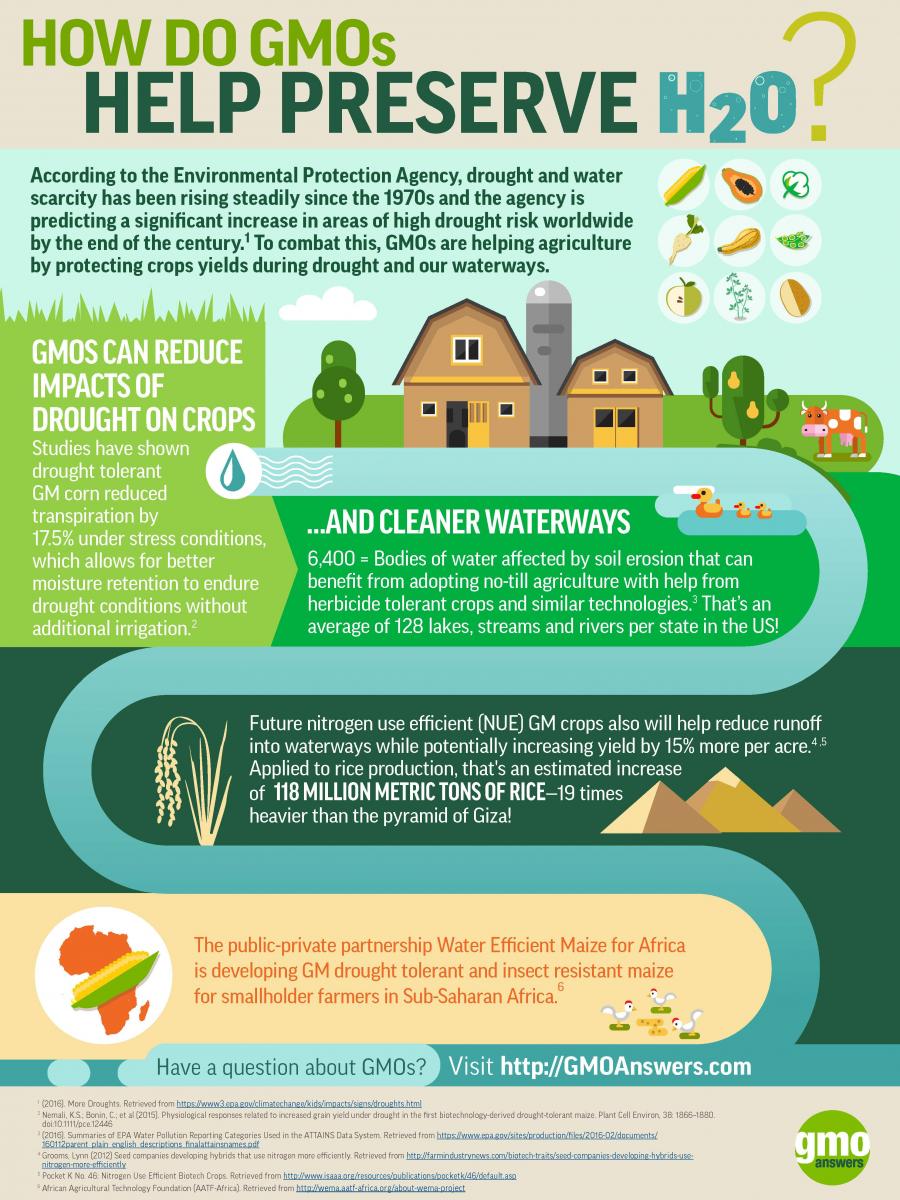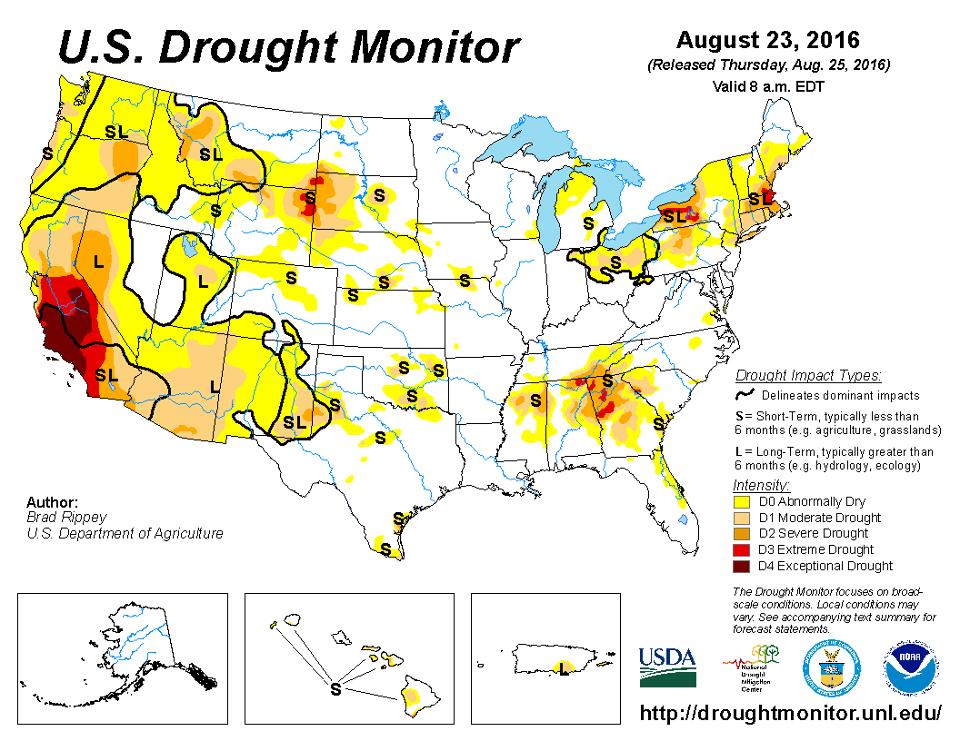This post was originally published on Forbes on August 30, 2016.
Post written by Kate Hall. Kate Hall is managing director of the Council for Biotechnology Information and GMO Answers spokesperson.

Over the weekend, more than 2,500 of the world’s experts, practitioners, policymakers and business innovators began to gather in Sweden to advance thinking and develop solutions to our planet’s most critical natural resource, water. The theme for the 25th World Water Week meeting, organized by the Stockholm International Water Institute (SIWI), is “Water for Sustainable Growth.”
The world’s leading thinkers and doers will build on the decisive sustainability actions of the past year, the United Nation’s agenda for 2030 Sustainable Development Goals (SDGs) and the Conference of the Parties agreement made in Paris (COP21), and collaborate on how today’s innovation in water stewardship will help us produce food, energy and jobs well into the future. They will all bring different solutions to address the challenge of our age: doing more with less.
Every day, our farmers are using new tools and technology to do more with less so they can solve for water efficiency. One of our farmers, Lawson Mozley, is a sixth generation farmer whose family has farmed the same land in the Florida Panhandle since the 1850s. For Mozley and other farmers, water is critical to delivering their mission to feed their families, communities and the world.
“For farmers, water represents balance. Not enough and our crops won’t grow. Too much, and they will drown and we will lose nutrients as they flow away.” Drought and water scarcity, on the rise since the 1970s, are challenging farmers to use less water to grow more food. And many are turning to biotechnology and GM crops to protect the sustainability of their natural resources and their livelihoods.

Farmers like Mozley embrace biotechnology solutions because they offer tools to help them use less water and breed stronger, more drought-tolerant plants. The use of herbicide resistant GM crops allows them to adopt conservation tillage or no-till practices, which preserves nutrients and increases the amount of water the land can store. Mozley says that “preserving soil and water resources is key to agricultural sustainability. For generations, my family has used the best technology available to preserve the land and water that we depend on.”
From the Florida Panhandle to the African nation of Tanzania, more farmers are looking to change what they plant and how they farm to combat severe drought that results from the extreme changes in weather patterns. Dr. Esther Ngumbi, a research scientist at Auburn University and Kenyan native, believes biotechnology can have a hand in helping farmers both in the U.S. and in her homeland thrive in the face of adversity. “As they face a continuous decline of rainfall and recurring droughts, African farmers will need all the tools and resources they can get to adapt to the effects of climate change. Biotechnology will continue to play a big role and farmers should be open to considering planting genetically modified crop varieties that have been bred to grow with minimal amounts of water.”

Farmers, no matter where they are located, all face the balancing act of feeding the hungry and caring for the land. The efficient and thoughtful use of water is critical to our farmers’ ability to deliver on their two-pronged missions, and the effectiveness of GMOs and GM crops has earned an important place in farming toolboxes.